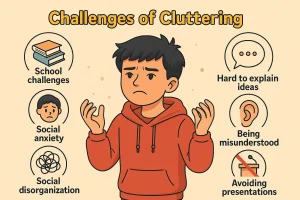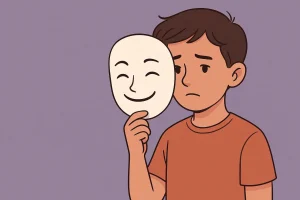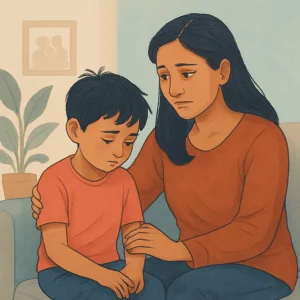Feeling stressed in your relationships? Tips to handle
By Prapoorna M
Last Updated: December 13, 2022
Lots of stuff is discussed about stress all over. Stress is a common ingredient of modern-day life that has to be balanced, just like salt in food. Yes, of course! A little stress keeps us active. It can help us face challenges. And such stress is called Eustress. But here we are talking about the bad one, the Distress! Stress, when it has some negative effects on our physical and mental health, affects every corner of our lives and is dangerous. Such stress is harmful to our relationships too. But how can one have stress in relationships? Well, daily stress can affect relationships. Our everyday life challenges can affect our moods, affecting our relationships. Relationships can evidently become stressful, as natural as it may sound. Unfortunately, everything is interlinked, and relationships will become stressful when we don’t know how to deal with our stressors.
In our stressful age, we are often exposed to several stressors, from work and time pressures to mobility, performance, and other complex pressures. All these pressures, directly or indirectly, affect our mental health, creating stress. A permanent information overload of the recent age is also a major cause of stress. Usually, when a person faces big life changes, such as moving to a new place, changing a job, losing a loved one, chronic illness, building a house, getting married and having children, everything creates potential stress in us. Financial issues like debts, sudden investments, and medical and other expenses create unexpected pressure. All these contribute to the everyday stresses of life. Stress in everyday life has a demonstrably negative effect on the couple and the family climate.

How does everyday stress affect our relationships?
Due to different stressors, personal stress increases, creating tension in the partnership. With this, the communication between partners deteriorates, negatively affecting the partnership. Along with this, the constant overload of all such disturbances puts weight on our mental and physical health. As a result, an individual faces sleep problems, low libido, listlessness and even mental illnesses. If chronic stress persists, partners withdraw from each other, talk less and react more irritably to each other. If such a couple does not develop effective strategies to cope with stress together, the satisfaction with the relationship decreases. This, in turn, causes a relationship crisis. It is why professionals suggest couples therapy if the relationship is strained. Couple therapy or Relationship counselling helps to identify the areas that need to be worked on.
How do you know that you are Stressed-out?
This is a common question because we think that we are just acting out our emotions and that it is common. Have you observed yourself recently expressing stress or despair, making statements about being overwhelmed and overburdened? Are you frequently accusing others or situations of you being a victim? Well, you got the signs!
Stress shows up in different ways. For example, if your partner’s voice sounds tensed, louder, restless, irritable, or impatient, they are stressed. Suppose your partner is hypersensitive to any words or emotions, abnormally silent or withdrawn, or irritated or nervous most of the time. In that case, that is a sure-shot indication of being under stress.
Stress can manifest in physical symptoms such as having trouble sleeping well, loss of memory, listlessness, breathing difficulties, tremors or restlessness, difficulty concentrating, paleness or cold hands. Talk to them if you notice that your partner’s behavior has changed noticeably. Addressing the actual causes of stress can help in preventing unnecessary relationship conflicts.
Coping with stress: Tips for couples
What can you do so your love relationship does not suffer, even under great external stress? We have brought some practical tips for managing stress together as a couple.
Identify the stressors
Sit in a peaceful corner and take a few deep breaths. Identify what is bothering you much. Make a note of those things and the reasons for botheration. Now, sit with your partner and discuss them. Your partner may have some solutions that might work for you.
In the same way, encourage your partner also to discuss and try solving. Do not ever belittle the stressors. The weight of every problem is specific to the individual. When addressed and discussed, it gets lighter, and you will start finding ways to solve it. If you don’t find any, put it aside till the other day and try not to think. The decision that you make after this peaceful gap will be a sound one.
Communicate your stress clearly
Many people often believe that our partner should recognize how we are feeling. But how will they? Though we think we have given clear signals through our non-verbal behavior, it might not seem so to them. This non-verbal expression is stressful, and when not identified, it creates even more stress!
Hence, it is good to talk. Tell your partner what you feel and how you are doing. Open up to have a good conversation by expressing what is bothering you. Only this way can you find good solutions together.

Know what you can do
Being a good partner, you can do your part to reduce your partner’s stress. The beauty of relationships is that you can share anything and accept unconditionally from your partner. If you are willing to contribute to your relationship, you can reduce the stress in your relationship together.
- When your partner talks about their stress, turn to them, give your attention and listen empathetically. Don’t give instant solutions. Listening is a big help as it makes them feel understood.
- Do not blame or criticize your partner for past things. There is no point in doing so. Moreover, they can’t share anything further, which hinders their betterment.
- In a relationship, when one of you is stressed, both partners will get affected. So, discussing and finding common solutions together to manage stress is good. It also creates a sense of security for both.
- While discussing an issue, allow freedom for your partner to think and explore different solutions. Don’t restrict them by regulating them through illogical boundaries. It feels suffocated, which can affect the relationship.
- A tender caress, a warm hug, a cosy cuddle or a loving massage after a stressful day gives us a feeling of security and calms us down. The happiness hormones such as dopamine and oxytocin get released in our brain when we are touched tenderly. These hormones help in strengthening the bonding in relationships.
- Assist your partner by making yourself available. Reduce the stress of your partner by sharing the chores. Mutual assistance in planning and organizing events and being involved in the completion of tasks would benefit a lot.
- Extend moral and emotional support to your partner. When stressed, help them to reassess the situation and to calm down emotionally. Believe in the strengths of your partner and encourage them.
- Make sure to provide the maximum comfort in a way only a partner can do. Physical touch, intimacy, and closeness create a sense of calmness, security, and confidence. Having a great time in bed is essential.
- Don’t forget to thank your partner for the support they have provided. Tell your partner how or what they helped you and how satisfied you are. Letting them know you are delighted keeps them motivated to always support you.
- Make it a point to spend time with each other daily to cherish the togetherness. It reduces the feeling of stress and charges you with new positive energies. This time should be spent only being together but not resolving conflicts or organizing everyday life.
Face it and Solve it
It is sometimes common to argue about a disagreement with your partner. Such conflicts should be resolved and reconciled after the quarrel. For that, you need to start a conversation with your partner after an argument to apologize for your inappropriate behavior during the quarrel. Approach your partner and admit your mistakes. This makes your partner also reflect on their behavior and feel the same. Stepping forward to strengthen the relationship is always good; thus, there won’t be any space for stress in relationships. Opening up like this and having good conversations helps reduce stress in relationships.
Are you having relationship issues you cannot solve on your own? Never hesitate to seek the help of a relationship counsellor. Couple counselling helps you identify and solve hidden issues. Book an appointment today.
Book your Free Consultation Today
Parent/Caregiver Info:
Client’s Details:
* Error Message









